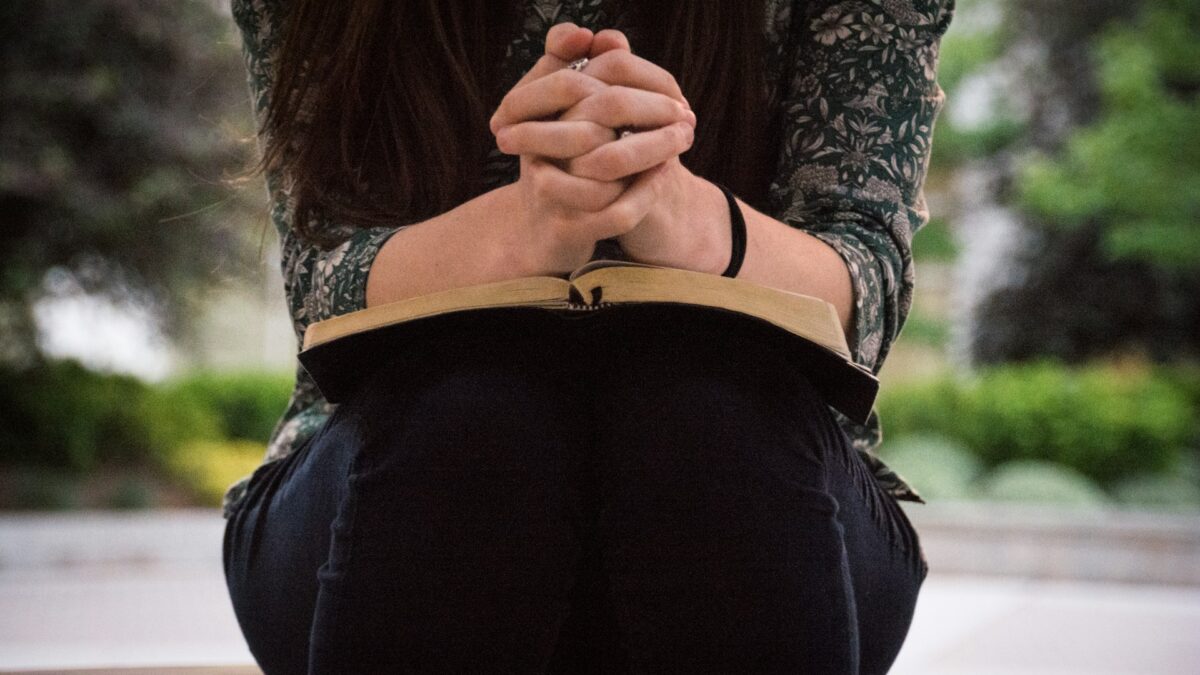
On Monday, President Trump recommended limiting gatherings to fewer than ten people in an effort to slow the spread of COVID-19 in the United States. This follows many states, counties, and cities banning gatherings first of more than 2,500 people, then 500, then 250. In the last few days, some areas have limited gatherings to fewer than 50 or even fewer than 10.
Social distancing is important to protecting public health and avoiding strain on hospitals and health-care providers. However, for millions of religious Americans, there are some things more important than physical health.
Many churches have canceled services or switched to livestream to protect their congregations from COVID-19. But for many, a virtual service just doesn’t cut it, because it means going without Holy Communion. Some denominations do not see this sacrament as a necessity, but others see it as essential to their spiritual health.
Christianity teaches that our spiritual and eternal well-being is more important than our physical, temporal well-being. If we have to choose between risking a temporary physical illness and potentially harming our spiritual, eternal health, we are going to choose the latter. Thus, going without communion to avoid contagion is a non-starter for many Christians in the United States and throughout the world.
That doesn’t mean we should ignore our physical health. We do need to limit or prevent community spread, and that means changing the way we normally do things. But what if we don’t have to cancel services to practice social distancing and limit the spread of COVID-19? There are some simple, practical things churches can do to have services in person while reducing risks to parishioners.
Hold more services, not fewer. One of the ways COVID-19 can spread in a church is by members sitting close together in the pews. If services are limited, some churches might see their sanctuaries more crowded, forcing people to sit too close together. By offering additional services at other times, churches can reduce the attendance per service and make it easier for members to space themselves out and reduce contact.
Skip the handshakes. The pastor can stop greeting people at the door on their way out after the service, and volunteer greeters can welcome visitors from a distance without shaking hands. In addition, members should be encouraged to go straight home after church rather than lingering to socialize.
Home visits for the homebound. Most churches already have a system for pastors visiting homebound members to offer communion, counsel, and prayer. Pastors can take precautions to avoid the spread of disease by washing their hands, avoiding contact with the person they’re visiting, and limiting the time spent at each home. Churches should prepare to see requests for these visits increase as members get sick or self-isolate to avoid infection.
Sanitize high-touch surfaces. Churches should sanitize pews, door handles, and other high-traffic areas between services. Additionally, propping doors open at the beginning and end of each service can help members avoid contact with those surfaces in the first place.
But what about Communion? Holy Communion has been a central part of Christian worship since its institution by Christ the night before His crucifixion. For nearly 2,000 years, Christians have gathered to partake in Christ’s Body and Blood at His direction.
Holy Communion is one of the primary reasons to continue holding in-person church services. It’s also one of the biggest concerns for churches that use a common cup (a chalice that each member drinks from) or a cochlear (a long, golden spoon used by Eastern Orthodox churches to administer the Body and Blood directly into the communicant’s mouth).
Churches have discussed this concern in the past with other pandemics and viral outbreaks, and generally have come to the conclusion that the silver or gold in the chalice or cochlear plus the alcohol in the wine reduce the likelihood of disease transmission. In fact, there are no studies that show disease spread through contact with the chalice used in Holy Communion.
In the 2005 Los Angeles Times article, “Does Communion Cup Runneth Over With Germs?”, the author discusses attempts to measure disease spread and notes the complete lack of evidence to support skipping the common cup to avoid disease transmission. While the article misses the mark on why Holy Communion is so important to so many Christians, it does ease concerns about this aspect of Christian worship.
Churches may offer individual cups for those who are concerned about getting sick. Some churches, including many Catholic parishes, may even skip the cup altogether and offer only Christ’s Body to communicants, while other churches view communion in both kinds (both the Body and Blood of Christ) as necessary. Either way, the research shows that Christians don’t need to fear the common cup, even when there’s a virus going around.
Churches do not necessarily need to cancel services or even switch to livestream because of COVID-19. They do need to take common-sense precautions and encourage members to take care of themselves if sick and stay home. In a time where every news story is focused on physical health, we cannot neglect our spiritual health and our eternal life.









